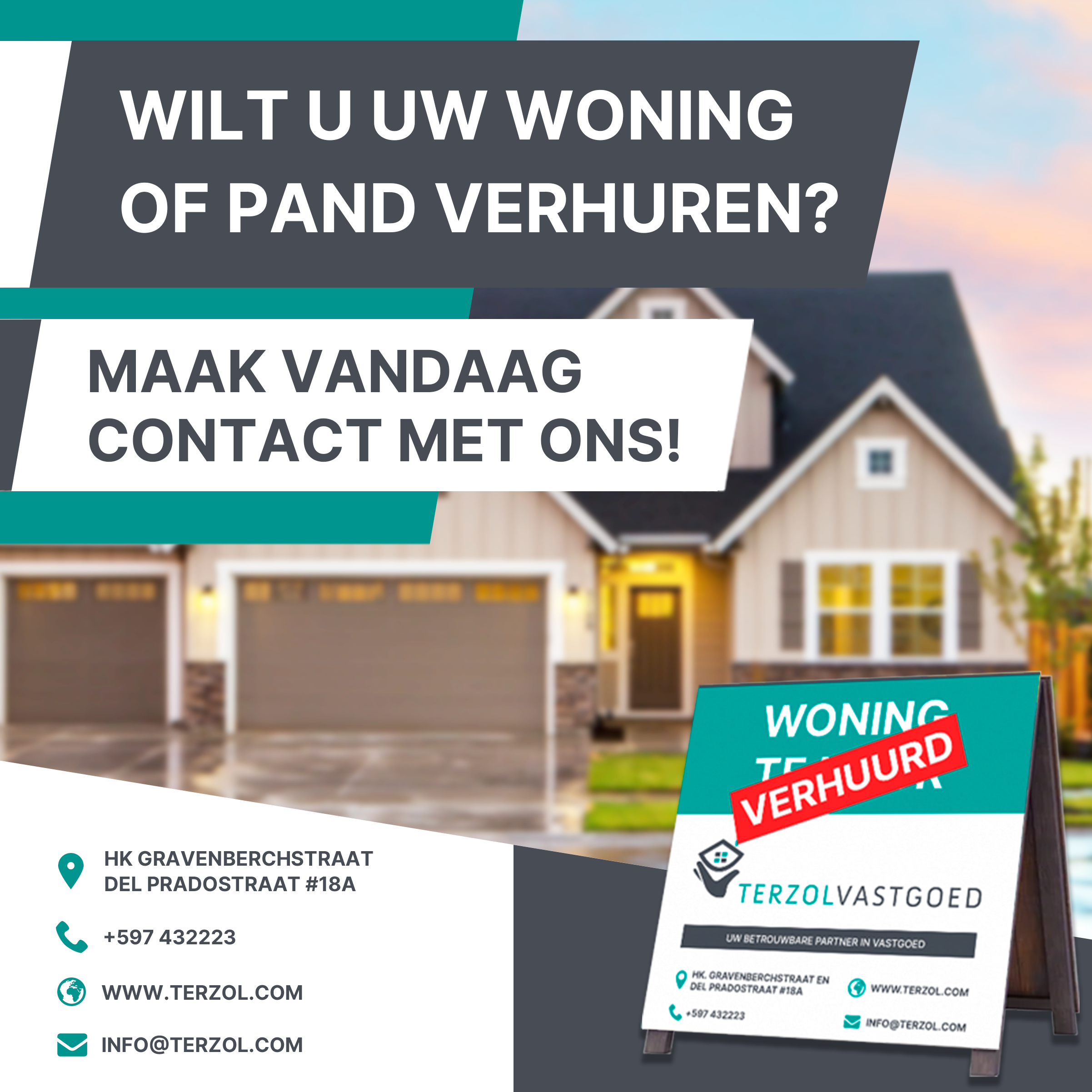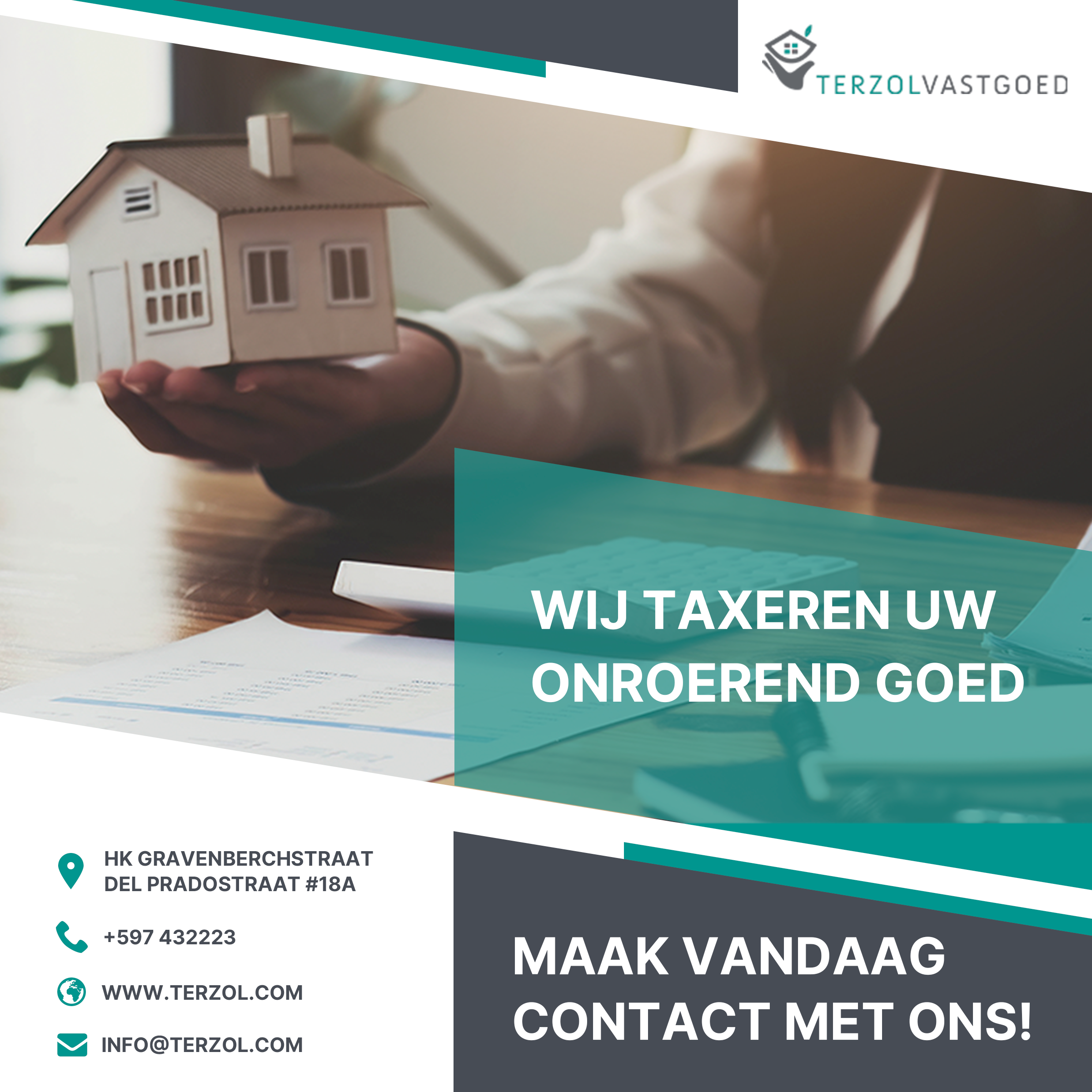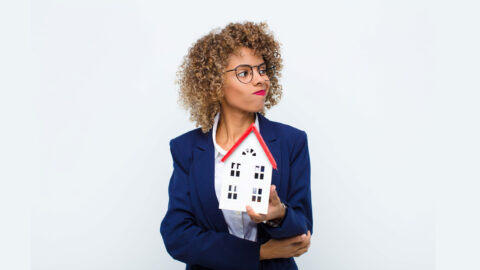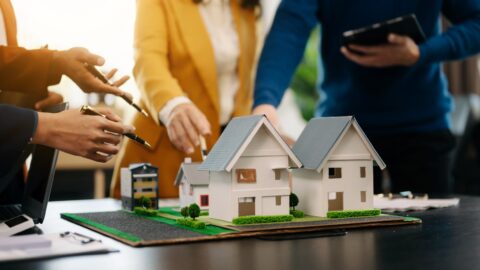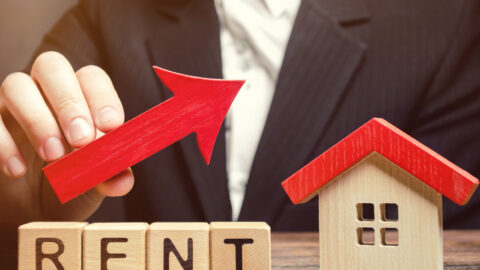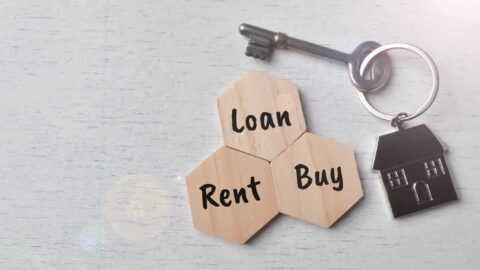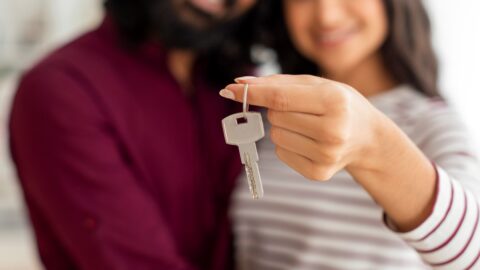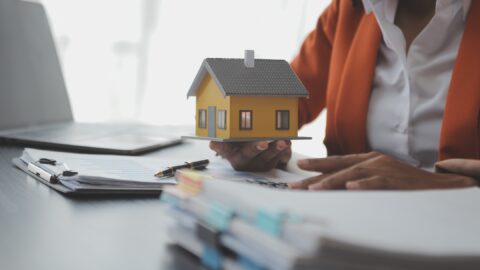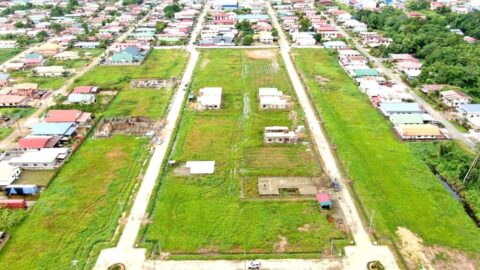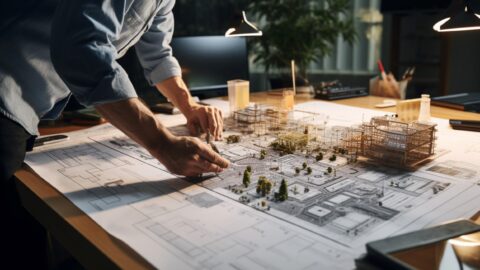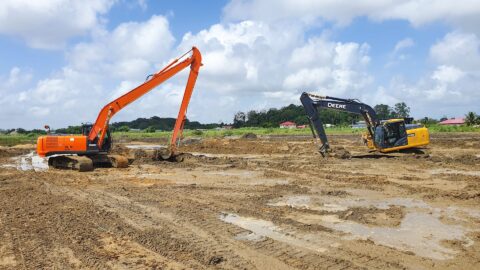Apartment Law Part 1: NEEDED?!
Terzol Vastgoed NV offers integral services in the areas of purchase and sales brokerage, leasing and rental, appraisals, property management, subdivision, project development and consultancy to national and international corporate and private clients in Suriname as of 2017.
Terzol Vastgoed N.V. aims with the series of articles under the name ‘Grondzaken Nader Belicht’ to create or increase the awareness of all stakeholders – including brokers, developers, investors, landowners, buyers and government – about the various possibilities and legal certainties regarding land matters in Suriname.
Joël Terzol, Senior Partner and CEO Terzol Vastgoed NV, once started as a financial professional in the Netherlands and has developed himself as an ambitious and successful entrepreneur within the real estate market in Suriname.
Although buying and selling real estate runs in his blood, he has developed a passion for advising on all kinds of issues related to ground lease, ground rent and estate matters within the real estate market.
In addition, Terzol anticipates the major developments in the Gold, Oil & Gas Industries in Suriname by developing projects in innovative ways to meet the modern needs of expatriates.
Terzol will cover the following topics in the series of articles, namely:
- Domain land
- Ground conversion
- Land tax
- Apartment Law
- Estate matters
- Land Policy
- Reason
As citizens of one of the greenest countries in the world, you will agree that our country’s lands should be developed in the most efficient ways.
In practice, it appears that much forest is disappearing due to human activity, especially for commercial purposes.
In April 2019, a study by the University of Maryland concluded that “the urgency to prevent runaway climate change and irreversible biodiversity loss, countries – including Suriname – must combat deforestation – before it is too late” [ 1].
Suriname is not escaping global climate change.
40% of the population lives in Paramaribo [2] with much land being used and little of the forest remaining in the city.
Yet there is still an acute housing shortage.
The call for a sustainable solution to the housing problem is inescapable.
Against the background of the situation outlined above, in this article I will highlight the subject of Apartment Law, which from my perspective can make a significant contribution to our needs for the sustainable development of good housing and living environments, efficient use of our land and attention to the climate.
How can our country be designed in an innovative and sustainable way, so that land can be used efficiently? But why is Appartment Law desperately needed NOW? Apartment buildings can offer many advantages and are also cheaper to construct, especially where land is expensive.
It is of eminent importance that the Apartment Law be passed as soon as possible.
And for the following reasons, among others: Less deforestation With an apartment tower, less land is needed to house large groups.
As a result, much of the forest can be preserved.
Some 98 percent of Suriname is covered with virgin forest and is part of the largest tropical rainforest on earth: the Amazon.
That our forest needs more and better protection needs no explanation.
Stricter policies and proper enforcement are not only essential and indispensable for the preservation of Suriname’s nature; they also bring economic benefits.
Suriname can earn billions of US dollars annually from ‘carbon credits’ [3].
The introduction of ‘carbon credits’ was ratified in the Kyoto Protocol.
The ‘Paris Agreement’ validates the application of carbon credits and sets the provisions for the further facilitation of carbon markets [4].
In accordance with the Paris Agreement, we must halve current greenhouse gas emissions by 2030 and reduce them to “net zero” by 2050.
But what about activities that cannot be decarbonized?
The answer is: carbon credits (CO2 credits).
Countries can offset their carbon footprint by buying CO2 credits to achieve carbon neutral status.
Suriname has a large amount of tropical forest that provides a significantly large amount of carbon storage and as such can benefit those who want to buy CO2 credits.
For us, the forest is our gunu gowtu – the green gold – and has great value, not only for Suriname but for the entire world.
We must cherish our green gold [5]. Cheaper and Sustainable Construction It goes without saying that when a tower building can house several households, construction costs are relatively lower.
In addition, construction can be sustainable and efficient.
Consider parking under the building, facades that do not let heat through while generating energy, thermo paint that repels heat, glasswork that blocks sunlight, insulation of the roof and intermediate walls so that less cooling is needed and therefore less energy consumption.
Buying building materials in bulk makes construction costs relatively cheaper.
Putting apartments up for sale will reduce the demand for land.
I am convinced that if we want to move forward, we must be willing to change.
Our traditional way of building and living must undergo a transformation.
We must start building and living “smart and green.
Decades ago, you would immediately think of the Jetsons who already knew how to live ‘smart’ when the Internet was not even available to everyone yet [6].
‘Smart green buildings’ are built with the capacity to maximize their own operational efficiency. This is achieved by integrating systems such as lighting, central cooling, safety, energy management, security (access control, video surveillance, visitor management) etc. into a centrally controlled system.
The technology is often compared to a central nervous system that contains building strategies set to improve its own performance.
It is essential to expand current efforts to create a better environment.
One of the main benefits of smart building is reduced energy consumption.
This not only provides savings but is also sustainable and also reduces operational costs [7].
Although smart building will initially be a large investment, studies [8] have shown that it is much cheaper in the long run.
This can lead to overall efficiency and property savings.
In the “2021 EU Climate Plan,” it appears that the real estate sector, among others, is at the center.
This is because buildings emit about 39% of global energy-related CO2.
Through “smart green” building, the 2050 “net-zero” goal can be reached faster [9].
This again reflects the critical need to build “smart green” residential towers while simultaneously nurturing our natural environment-our green gold.
Conclusion In July 2021, the State of the Climate (SOC [10]) Report Suriname was released.
This report indicated that Suriname is very vulnerable to the effects of climate change.
I am convinced that we agree that we are at a turning point.
As the United Nations indicates [11]: “If we join forces now, we can prevent a climate catastrophe. There is no time for procrastination and no room for excuses”.
We really want to become sustainable and work for a healthy world.
Now we just have to turn the right buttons and make the right decisions: including the Apartment Law.
That is at least a step in the right direction.
You don’t build Suriname alone, we do it together: Yes – we can! Sources:[1] The West – Deforestation in Suriname up 12% – DE WEST (dagbladdewest.com)[2] Suriname Population 2021 (Demographics, Maps, Graphs) (worldpopulationreview.com)[3] Star News – Gajadien: Country can earn US$1.5 billion from forest[4] Carbon Credit – Definition, Types and Trading of Carbon Credits (corporatefinanceinstitute.com)[5]
[6] Smart Buildings – Living Green in a Big Way | CIVIL ENGINEERING 365[7] 6 Reasons Why We Need Smart Buildings in 2021 | Smart CRE (smart-cre.com)[8] (PDF) Assessing the Impact of Smart Building Techniques: a Prospective Study for France (researchgate.net)[9] What the New 2021 EU Climate Plan Means for Real Estate | Smart CRE (smart-cre.com)
[10] State of the Climate Report: Suriname (iadb.org)
[11] Climate change: Code red for humanity | Suriname News Central
